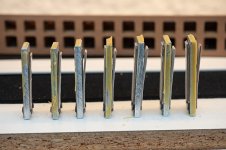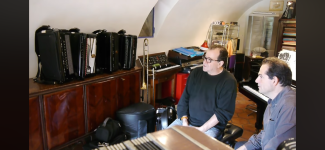There are like varying levels that if you do something, a bad thing will happen, some definitely worse than others.
We can all agree that high levels of heat melts wax, high levels of humidity rusts reeds and other metal parts and attacks anything cardboard and can cause mold, mildew, bad smells and eventually even wood rot.
Dropping them from any height is also considered a negative experience, dropping them down basement stairs is very bad… or so they tell me.
Storage position and gravity’s effect on valves is a given, I think that many of us have played accordions with hard curled reed valves that looked like boomerangs and said ‘hey, this sounds pretty good!”, and it could sound good, but it leaks air like a sieve, growls like the neighbour’s rottie and the entire tune is off by between 5-50 cents depending what note we hit.
Valves are one of those things that most beginners 9or some experienced players like me!), would not even know was an issue and it takes something fairly “in your face” before we notice. there are many levels of ”bad”, yes? The ears of a trained experienced person, though, would tell a much different story.
As an example, personally, I did not think the valves were bad on my Imperator, they weren’t curled or lifted much, most were 100% flat. I put her in for some spot tuning as many notes to me felt off and it turned out that with the exception of a reed that required re-waxing , no tuning was needed, but between the bass and treble, 140 valves were replaced! I thought the Imperator sounded nice before, it felt tight, but now, it is SO much more efficient and dynamic. I thought I knew what a good one felt like, but properly maintained, it is a completely different beast.
My point… what we sometimes feel is “good” in the hands of someone that knows what they are doing can show you a much different story, one that shows what it should be like.



